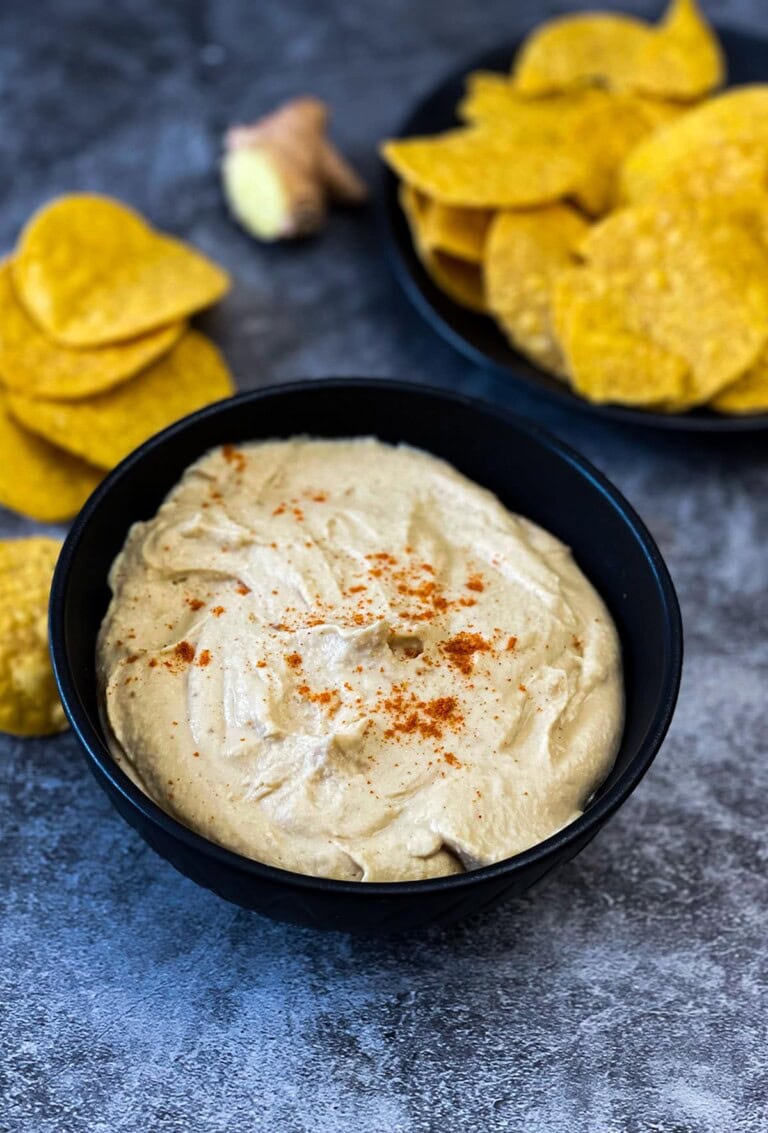Ginger Tea
Ginger tea
Ginger is a spice native to South Asia. It has been used for thousands of years as a flavoring and for its medicinal purposes. A popular use of this spice is for ginger tea.
It contains natural compounds like gingerol, an active ingredient attributed to ginger’s ability to fight disease and improve health and well-being.
Similar ginger recipes:
While ginger can be consumed in different ways, ginger tea is the most convenient way to optimize the benefits it contains.
In this article, we’re going to discuss the various benefits of ginger tea and how you can make yours in the comfort of your home.
Ginger tea benefits:
Here are the health benefits of ginger water backed by science. For more, check out the Health Benefits of Ginger.
1. It may lower blood sugar levels
Gingerol, the major active ingredient in ginger, has been shown to improve glucose uptake, thus improving blood sugar levels, especially in diabetes.
In one study, consuming 2 grams of ginger powder daily was shown to lower fasting blood sugar and HbA1c (hemoglobin A1c) by 12 percent and 10 percent, respectively, in patients with type 2 diabetes.
HbA1c gives an average overview of your blood glucose levels for the past 3 months.
A 2019 review also found that ginger can effectively lower HbA1c in type 2 diabetes. This confirms that the compounds in ginger may be effective in controlling blood sugar levels long time.
2. It may lower cholesterol levels
Studies show a correlation between high LDL cholesterol levels and chronic health conditions like heart disease and heart attacks.
In one study, consuming ginger significantly reduced LDL cholesterol by 10 percent in 45 days.
In another study, patients with hyperlipidemia that received 5 grams of ginger paste experienced decreased bad cholesterol levels by 17.4 percent in just 3 months.
3. It may help fight cancer
The high gingerol content in raw ginger may be an alternative remedy for treating various cancers, including ovarian cancer, breast cancer, and cancers affecting the gastrointestinal system like colon, liver, and pancreatic cancer.
Additionally, ginger possesses anti-inflammatory, antioxidant, and anti-cancer properties due to the presence of plant compounds like shogoals and parasols.
In one study, gingerol was shown to suppress colon cancer growth, while in another, it reduced pro-inflammatory signaling in individuals with a normal risk of developing colon cancer.
4. It may improve brain function and protect against cognitive decline
Inflammation is the fueling force behind the age-related cognitive decline and Alzheimer’s disease. However, drinking ginger water can help deliver the antioxidants and other compounds that prevent inflammation and counteract its effects on the brain.
Various studies also show that ginger may help prove brain damage, support memory impairment, and prevent age-related decline in brain function.
5. It can fight infections
Regular intake of ginger water may offer protection against various bacteria and disease-causing pathogens.
For instance, fresh ginger may help fight against the respiratory syncytial virus (RSV), a common respiratory virus that causes infections of the lungs and respiratory tract.
Ginger is also very effective against harmful oral bacteria associated with inflammatory gum disease, including periodontitis and gingivitis. Besides, ginger water may help fight bad breath and promote a feeling of freshness.
6. It may significantly improve menstrual pain
Menstrual cramps occur when the uterine muscles contract due to the buildup of prostaglandins during the early phase of menstruation. Prostaglandins, hormone-like compounds, cause pain and control the processes in the body where they are produced.
Drinking ginger water may help reduce the production of prostaglandins and lower inflammation, thus providing relief.
A study published in the Journal of Complementary and Alternative Medicine found that consuming ginger extract may provide the same pain relief as Advil, a non-steroidal anti-inflammatory drug often used to relieve menstrual pain.
7. Ginger tea may improve chronic indigestion
Recurrent discomfort or pain in the upper abdomen is a symptom of chronic indigestion. This condition can develop due to factors such as delayed gastric emptying, GERD, gallbladder disease, or ulcers.
Ginger has been shown to speed up the rate at which your stomach is emptied, thus relieving indigestion.
In one study, patients with functional dyspepsia (indigestion with no known cause) were given either a ginger supplement or a placebo, and they had soup after an hour. The ginger group took 12.3 minutes for their stomachs to empty, while the placebo group took 16.1 minutes.
But keep in mind that chronic indigestion is often a sign of an underlying condition, not a condition of its own. Ensure that you schedule an appointment and get checked out so that you can receive appropriate treatment and management.
Studies have demonstrated that ginger improves gastric emptying in both healthy individuals and those without indigestion. This shows that regular intake of ginger can help maintain a healthy gut, or improve gut health in a not-so-healthy one.
8. It can alleviate nausea and prevent vomiting
People have traditionally used ginger as a natural remedy to soothe an upset stomach or alleviate nausea.
According to research, ginger may benefit a wide range of nausea and vomiting causes, including pregnancy and chemotherapy-induced.
Furthermore, ginger may be as effective as some anti-nausea medications but without side effects.
Ginger tea recipe:
- Fresh ginger root
- Water
- Sweetener of choice (optional)
- Additional herbs and spices (optional)
How to make ginger tea?
The method is pretty easy:
- Wash a part of the fresh ginger root and grate enough for a teaspoon of ginger.
- Bring 3 cups of water to a boil, then add the ginger.
- Cover the pot, turn off the heat, and let the ginger steep for about 10 minutes.
- Strain off the ginger pieces from the water and discard them.
- Enjoy ginger tea hot or cold.
Some people may add some sweetener, lemon juice, and/or mint to enhance the taste. This tea is totally customizable!
How much ginger should I take daily?
Experts recommend taking 3-4 grams of ginger daily. This is equivalent to 1 teaspoon of grated raw ginger, or ½ teaspoon of powdered ginger, or 4 cups of steeped ginger water.
Final thoughts on ginger tea:
Drinking ginger tea can help promote health in several ways, including lowering blood glucose levels, lowering cholesterol, improving chronic digestion, preventing nausea and vomiting, improving conic indigestion, improving menstrual pain, and fighting infections.
More healthy herbal teas:
- Mint Tea
- Rooibos Tea
- Oregano Tea
- Chaga Tea
- Moringa Tea
- Parsley Tea
- Saffron Tea
- Immunity Booster Tea
- Pineapple Peel Tea
- Fennel Tea
If you enjoyed this Ginger Tea recipe and would love to see more, join me on Youtube, Instagram, Facebook & Twitter!
Join Our Facebook Juice Support Group
Love seasonal recipes? Don’t miss out on my special offer for a limited time! Grab all three of my cookbooks for just $19.99! They’re filled with delicious, healthy dishes that are perfect for every season. Hurry and get your set before the offer ends!
Want to Save This Recipe?
Enter your email & I’ll send it to your inbox. Plus, get great new recipes from me every week!
By submitting this form, you consent to receive emails from Healthier Steps.

Ginger Tea
Ingredients
- 1 piece fresh ginger root
- 3 cups water
- sweetener of choice optional
- additional herbs and spices optional
Instructions
- Wash a part of fresh ginger root and grate enough for a teaspoon of ginger.
- Bring 3 cups of water to boil, then add the ginger.
- Cover the pot, turn off the heat, and let the ginger steep for about 10 minutes.
- Strain off the ginger pieces from the water and discard them.
- Enjoy ginger tea hot or cold!










